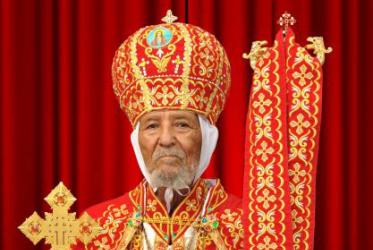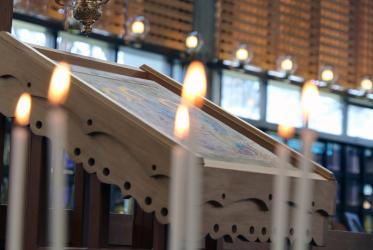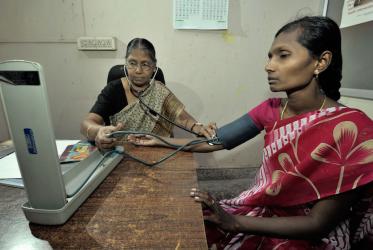Displaying 1 - 20 of 23
Young Africans are eager to grapple with challenges
09 January 2020
WCC hosts delegation from Eritrean Orthodox Tewahdo Church
14 November 2018
Churches celebrate reconciliations in Ethiopia, Eritrea
07 November 2018
Conversation on HIV “must continue,” Faith Networking Zone shows
07 December 2017
“Good healthcare a right, not a privilege,” says WCC-EAA
11 October 2017
Eritrean Orthodox Tewahdo Church hosts WCC delegation
03 October 2017
“It’s time to be brave, to form diverse partnerships”
02 March 2017
“Health and healing for all people, that is the challenge”
28 February 2017
Honest talk blossoms between youth, theologians in Cote d’Ivoire
14 September 2016
WCC mourns death of Bishop Diyoskoros
23 December 2015














